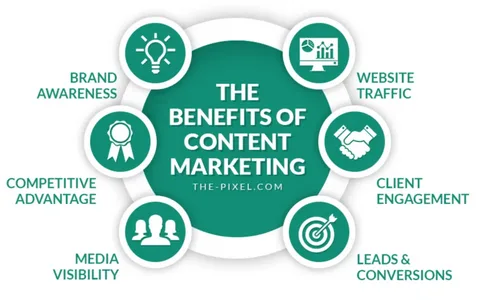Introduction
In the dynamic landscape of education, e-learning has emerged as a transformative force, offering flexibility and accessibility to learners worldwide. However, the success of e-learning platforms is not solely dependent on the quality of the content; it also hinges on an effective content marketing strategy. This article delves into the importance of a robust content marketing strategy in the realm of e-learning and its impact on reaching, engaging, and retaining learners.
**1. Building Brand Awareness and Credibility
A well-crafted content marketing strategy contributes to building brand awareness and credibility in the competitive e-learning space. By consistently delivering valuable and relevant content, e-learning platforms can establish themselves as authoritative sources of knowledge. This, in turn, enhances the brand’s reputation and fosters trust among potential learners.
**2. Targeted Audience Engagement
Understanding the target audience is paramount in e-learning, and a content marketing strategy allows for precise audience targeting. Tailored content that addresses the specific needs, challenges, and interests of the audience enhances engagement. Whether through blog posts, videos, or social media content, a targeted approach resonates more effectively with the intended learners.
**3. Showcasing Course Offerings and Benefits
An e-learning content marketing strategy serves as a platform to showcase the diverse course offerings and their associated benefits. Through compelling content, e-learning platforms can highlight the unique features of their courses, the skills learners can acquire, and the real-world applications of the knowledge gained. This serves to attract and inform potential learners about the value they can derive from the courses.
**4. Search Engine Visibility and Optimization
In the digital age, visibility on search engines is crucial for the success of any online platform. A well-optimized content marketing strategy, incorporating relevant keywords and SEO best practices, ensures that e-learning platforms rank higher in search engine results. This increased visibility translates into more organic traffic and exposure to a broader audience.
**5. Establishing Thought Leadership
Thought leadership is a key component of a successful content marketing strategy in e-learning. By producing thought-provoking content, sharing industry insights, and participating in relevant discussions, e-learning platforms position themselves as leaders in the field. This not only attracts learners but also encourages collaboration and partnerships within the education ecosystem.
**6. Harnessing the Power of Social Media
Social media is a powerful tool in the realm of e-learning, and an effective content marketing strategy leverages this platform. Engaging content shared on social media channels not only reaches a wider audience but also encourages social sharing, expanding the platform’s reach organically. Social media provides a direct channel for interaction and feedback from learners.
**7. Nurturing a Community of Learners
Content marketing goes beyond acquisition; it plays a crucial role in nurturing a community of learners. Engaging and informative content fosters a sense of belonging among learners. Whether through forums, webinars, or collaborative projects, a content-driven community encourages continuous learning and creates a supportive environment for learners.
**8. Addressing Pain Points and FAQs
A well-planned content marketing strategy anticipates and addresses the pain points and frequently asked questions (FAQs) of potential learners. By providing solutions and insights through content, e-learning platforms proactively address concerns and barriers that learners may have, facilitating a smoother decision-making process.
**9. Email Marketing for Retention and Updates
Email marketing is a valuable component of content marketing for e-learning platforms. It serves as a direct communication channel to keep learners informed about updates, new courses, and relevant content. Email campaigns can also be tailored for learner retention, offering personalized recommendations and fostering continued engagement.
**10. Measuring and Adapting Strategies
The data-driven nature of digital marketing allows e-learning platforms to measure the effectiveness of their content marketing strategies. Analyzing metrics such as website traffic, conversion rates, and engagement levels provides valuable insights. E-learning platforms can adapt their strategies based on this data, ensuring continuous improvement and relevance.
Conclusion
In the competitive landscape of e-learning, a robust content marketing strategy is not just a complementary element; it is a strategic imperative. From building brand awareness to fostering learner engagement and retention, the impact of well-crafted content resonates across the entire learner journey. E-learning platforms that recognize and harness the power of content marketing are better positioned to not only attract learners but also to create meaningful and sustained educational experiences.


